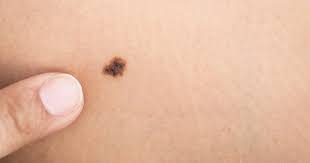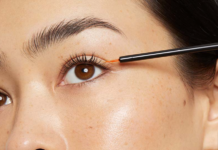Most people are aware of the dangers of too much sun exposure, but many don’t realize that skin cancer can occur even if you don’t spend a lot of time in the sun. It’s important to be able to spot the early signs of skin cancer so that you can seek treatment as soon as possible.
If you are worried that you may have skin cancer, look out for the following signs:
- A new mole– Most people have a few moles, but if you develop a new mole it could be a sign of skin cancer. Some people are more at risk of skin cancer if they have a lot of moles, so it’s important to keep an eye on them.
- A changing mole– If a mole changes in size, shape, or color it could be a sign of skin cancer. The changes may be subtle, so it’s important to keep an eye on any moles that you have.
- A sore that doesn’t heal– If you have a sore or wound that doesn’t heal within a few weeks, it could be something to worry about. This is especially true if the sore is on your face or neck.
- Skin that feels itchy or scaly– If you have skin that feels itchy or scaly, it could be a sign of skin cancer. This is especially true if the itchiness or scaliness is new and you can’t seem to get rid of it.
- A growth on the skin– Any new growths on the skin, even if they don’t seem to be causing any problems, could be a sign of skin cancer.
If you notice any of these signs, it’s important to see a doctor as soon as possible for a diagnosis. Early diagnosis and treatment are crucial for skin cancer.
What causes skin cancer?
The main cause of skin cancer is exposure to ultraviolet (UV) radiation from the sun or other sources, such as tanning beds. UV radiation can damage the DNA in your skin cells, which can lead to skin cancer.
People who are most at risk of developing skin cancer are those with fair skin, who sunburn easily, or who have a lot of sun exposure. People with certain medical conditions, such as cancer or HIV/AIDS, are also at increased risk.
How can I prevent skin cancer?
The best way to prevent skin cancer is to avoid too much sun exposure. When you are in the sun, make sure to wear sunscreen with an SPF of at least 15, and reapply it every two hours. Wear protective clothing, such as a hat and sunglasses, when you are in the sun. And avoid tanning beds altogether.
How to treat skin cancer?
If you are diagnosed with skin cancer, your treatment will depend on the type and stage of cancer. Treatment options include surgery, radiation therapy, and chemotherapy. There are many skin cancer treatments in Salt Lake City and other cities in the US, so talk to your doctor about what is best for you.
Skin cancer is a serious disease that can be deadly. But it is also highly treatable, especially if it is caught early. So, if you notice any changes in your skin, see a doctor right away. And take steps to protect yourself from the sun to prevent skin cancer in the first place.











